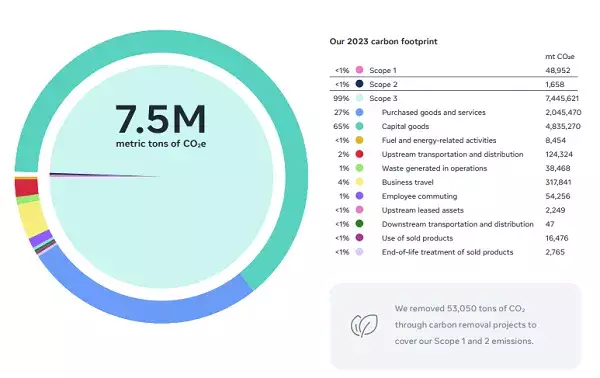Meta Platforms, a pivotal player in the tech industry, recently unveiled its comprehensive “Responsible Business Practices Report.” Spanning 144 pages, the document provides a multifaceted overview of the company’s strategies regarding artificial intelligence (AI), the metaverse, social responsibility, and environmental stewardship. While the report proudly showcases the company’s forward-thinking initiatives, it also necessitates a critical exploration of its content, implications, and potential shortcomings.
At the heart of Meta’s latest report is a focus on the company’s AI development strategies. From the onset, Meta emphasizes the importance of democratizing access to AI technologies—a noble aim, especially with concerns that unequal access could widen existing socio-economic divides. By fostering an open-source approach, Meta aspires to ensure that AI’s benefits extend globally. However, one cannot help but question the practical execution of this ambition. While the vision of universal access is commendable, the reality is plagued by disparities in digital infrastructure and educational resources that could inhibit progress in underserved regions.
Furthermore, while Meta’s move towards integration of generative AI across its platforms may enhance user experience and connectivity, it raises ethical considerations. The rapid advancement of AI technology has previously been met with skepticism due to instances of misinformation and harmful content proliferating through digital spaces. Thus, although Meta projects a sunny future of AI facilitating rich, immersive experiences, it is crucial for them to manage these technologies responsibly to prevent potential societal harms.
Meta’s ambition to lead the evolution of the metaverse is also a focal point of the report. The term “metaverse” conjures images of a fully immersive digital experience that blurs the lines between reality and virtuality. While Meta passionately conveys its vision of a collaborative, interconnected environment that transcends geographical limitations, the report neglects to delve into the barriers to entry that such a technology presents. Access to cutting-edge hardware and high-speed internet remains a luxury for many. A significant portion of the global population continues to have minimal digital presence, casting doubt on the feasibility of Meta’s utopian vision.
In addition, there’s a looming concern over how the environment will be affected by this expansive digital realm. As Meta’s technologies evolve and resource consumption escalates, it is essential to investigate the ecological footprint of such endeavors. The report boasts of Meta’s commitment to environmental sustainability, yet one wonders whether the aspiration for a high-tech metaverse can genuinely harmonize with sustainability goals.
Another integral theme of the report is Meta’s ongoing investment in privacy and data protection—a commendable focus given the company’s history marred by data scandals. The claim that $5.5 billion has been funneled into rigorous privacy initiatives reflects a significant commitment. However, the question persists: Will these investments suffice in an increasingly complex regulatory landscape? Meta’s historical track record raises skepticism regarding the ability to embed privacy into every product iteration and decision.
The complexities of Meta’s role in shaping public discourse are also underscored by its political contributions stance. While the report states that Meta collectively supports political candidates who align with its corporate interests, it is crucial to scrutinize how this relationship could influence legislation around technology and privacy. This situation creates an inherent conflict of interest that can jeopardize the broader public interest, suggesting a difficult balance between business strategy and genuine corporate responsibility.
Ultimately, while Meta’s “Responsible Business Practices Report” paints an attractive picture of ambition and innovation, it invites critical scrutiny. The aspirations surrounding AI, the metaverse, and privacy must contend with complex realities and historical precedents. As Meta charts its future direction, it is imperative to prioritize ethical considerations, transparency, and genuine inclusivity. The tech giant’s endeavors could indeed reshape our digital landscape for the better, but they must be conducted with vigilance and accountability to ensure that progress does not come at the cost of societal well-being.


Leave a Reply